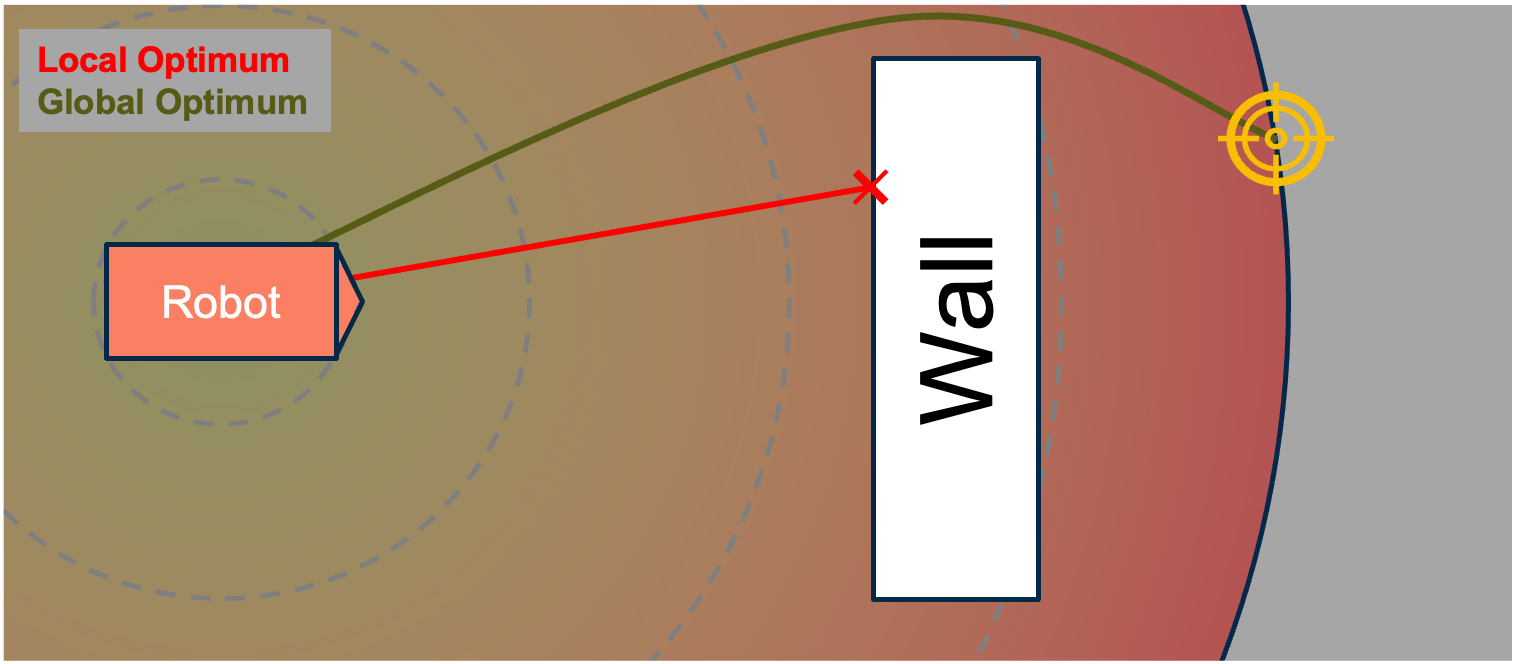Learning-Based Reward Functions for Improved Autonomous Navigation in Confined Terrains
Note: Due to ongoing research and pending publication, certain technical details and results have been intentionally omitted from this page.
Technologies & Tools
Results & Outcomes
Expected Impact: This work presents a promising new perspective on planning and navigation challenges in robotics. Future directions include generalizing the approach across diverse scenarios through large-scale dataset generation in IsaacSim. If successfully generalized, this optimization-based approach could significantly advance autonomous navigation capabilities in complex, dynamic environments.
